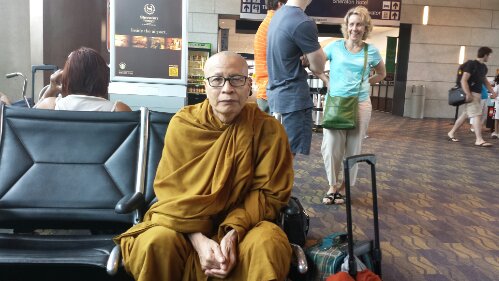
First of all, why should we think about death? Why should we contemplate it? Not only did the Buddha encourage us to speak about death, he encouraged us to actually think about it, contemplate it and reflect on it regularly.
On one occasion the Buddha asked several of the monks, “How often do you contemplate death?”
One of them replied, “Lord, I contemplate death every day.”
“Not good enough,” the Buddha said, and asked another monk, who replied,
“Lord, I contemplate death with each mouthful that I eat during the meal.”
“Better, but not good enough,” said the Buddha, “What about you?”
The third monk said, “Lord, I contemplate death with each inhalation and each exhalation.”
That’s all it takes, the inhalation comes in, it goes out, and one day it won’t come in again – and that’s it. That’s all there is between you and death, just that inhalation, the next inhalation.
Obviously the Buddha considered this a very important part of meditation and training towards becoming more wise and more peaceful. Why is it that this contemplation is encouraged? Because we don’t usually want to think or talk about death. Be it conscious or unconscious, there is a fear of death, a tendency to avoid it, a reluctance to come face to face with this reality.
Death is very much a part of life; it’s just as much a part of life as birth. In fact, the moment of birth implies death. From the moment of conception it is only a matter of time before death must come – to everyone. No one can escape it. That which is born will die. The mind and body which arise at the time of conception develop, grow and mature. In other words, they follow the process of aging. We call it growing up at first, then growing old, but it’s just a single process of maturing, developing, evolving towards the inevitable death. Everyone of you has signed a contract, just as I did. You may not remember signing that contract, but everyone has said, “I agree to die.” Every living being, not only human, not only animal, but in every plane, in every realm, everywhere there is birth, there is the inevitable balance – death.
~By Ajahn Jagaro


















